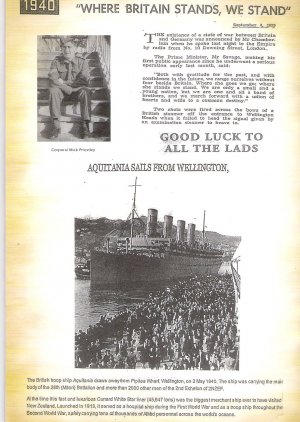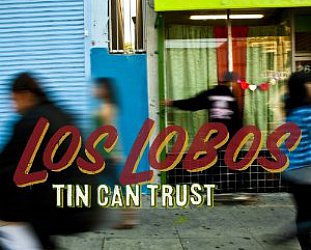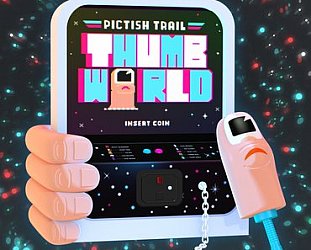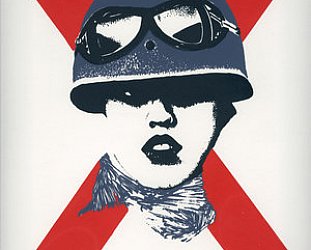Graham Reid | | 2 min read
Chris Priestley: Captain Lorraine

The firmly held belief here at Elsewhere -- which is a quorum of one, and I have the deciding vote -- is that New Zealand folk music has never been cool or interesting for most of the Sixties Generation And Beyond People because this musical tradition became uncoupled from popular music (ie. pop music) at about the time we were slightly embarassed about our origins and were looking to engage with the wider world . . . to just be part of it.
In other words, at the time some/many Americans were relating to the folk politics of Woody Guthrie and Pete Seeger, then later Dylan, Joan Baez and their folk revival, we in New Zealand just wanted Elvis Presley, rock'n'roll . . . . and then then Motown, the Beatles and the British Invasion.
It was just a whole lot more fun than songs about . . .
Songs about shipwrecks and loner guys who lived out there in the rain-sodden bush just seemed absurdly unsophisticated and a throwback. We in New Zealand wanted the present tense and the future, Barry Crump's books notwithstanding.
All the rest was just something called The Past. And believe me, that was another and much less exciting "other country".
I once wrote -- and I do stand by this -- if you went to a folk club in Auckland in the mid Sixties and someone sang a song which said 65 people died in the shipwreck you could almost guarantee a bearded guy at the back in a wooly sweater would get up and demand a recount: "Recent research says there were only 64 . . ."
 Ah-fukkit. Give me Beatlemania, Larry's Rebels, Playdate magazine and a decent jacket from The Brolly Male.
Ah-fukkit. Give me Beatlemania, Larry's Rebels, Playdate magazine and a decent jacket from The Brolly Male.
The New Zealand folk tradition never died out -- thank you in retrospect Neil Colquhoun, Phil Garland and others -- but it was certainly on life-support for many deacdes.
Perhaps, because of our wholesale adopting of Americana in the past two decades -- Jeez, are we really Old Testament believers? Please tell me no -- it has been less uncomfortable to accept that Pakeha in Aotearoa have a vibrant tradition of songs about just being in this place so far from, wht people used to call, "home".
Chris Priestley -- among others -- has been true to a traditon of folk balladeers and on this CD (which comes with a paperback sized book of relevant photos and news clippings) picks up the stories of heroes and places and weaves them into reflective acoustic folk with a few fellow travelers such as Nigel Gavin, Cameron Bennett, Emily Roughton and others.
So here are stories of Von Tempsky, the short life and tragic death of the tightrope dancer and barmaid Jennie Anderson, an almost spoken word piece employing four eye witness accounts of the Tarawera eruption in 1886, real characters such as the miner Little Biddy Goodwin who died at 96 and was the country's only female miner, a tribute to the long-gone gold mining town of St Bathans in Otago (it once had 13 pubs, today there's just one) . . .
There is cleverness here too: It' s very hard not to break a laugh on Hokonui Moonshine Whiskey Blues (about a mother of seven home-still woman who liked a daily dram) which morphs naturally into witty take on Route 66; "if you you ever plan to motor South . . . get your hooch on Route 96 . . . it winds from Mataura to Ohai . .. more than 57 miles to get high . . ."
The final song is a real heart-in-mouth narrative based, presumably, on his own father's story of being a POW in the Second World War. A newly minted Kiwi classic.
So, an excellent album but . . .
Okay, my problem -- and this is just personal -- is that the opening lines of the first song are "On a stormy Sepgtember night, 1863, a ship that smashed upon the rocks . . ."
I'm just waiting for the bearded guy at the back of the room to leap to his feet and say it was actually late August and . . .
So the story goes.







post a comment